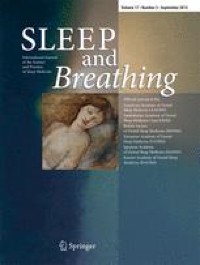Abstract
Background and objective
Obstructive sleep apnea (OSA) is associated with hypertension, psychological impairment, neurocognitive dysfunction, and poor quality of sleep. Continuous positive airway pressure (CPAP) has been confirmed to effectively improve OSA, while the effects of supplemental oxygen therapy on OSA have still remained controversial. This meta-analysis aimed to compare the effects of supplemental oxygen therapy and CPAP on patients with OSA.
Methods
PubMed, Cochrane library, EMBASE, and Web of Science databases were systematically searched from inception until April 2020. Randomized controlled trials (RCTs) that compared the effects of supplemental oxygen therapy and CPAP on patients with OSA were selected without language restriction.
Results
In this meta-analysis, 8 RCTs that involved 887 patients were found eligible for further analyses. Pooled data showed that there was no significant difference in improving nocturnal oxygen saturation (SpO2) level (95% confidence interval (CI) = − 1.17 to 1.53) or symptoms of depression (95%CI = − 0.69 to 1.19) between supplemental oxygen therapy and CPAP. Supplemental oxygen therapy was found less effective in reducing apnea-hypopnea index (AHI), time of SpO2 < 90%, blood pressure, and improving quality of sleep compared with CPAP. A subgroup analysis based on flow rate of oxygen indicated that the effects of supplemental oxygen therapy on blood pressure significantly differed. Furthermore, an improvement in overall time of SpO2 < 90% was correlated to duration of supplemental oxygen therapy.
Conclusions
CPAP is clinically effective for the treatment of patients with OSA. However, supplemental oxygen therapy can be cautiously used for improving nocturnal hypoxia and symptoms of depression when CPAP is not acceptable or not tolerated. Supplemental oxygen therapy is a promising option to alleviate partial disorders of OSA. Further studies need to focus on flow rate of oxygen and duration of supplemental oxygen therapy.



Δεν υπάρχουν σχόλια:
Δημοσίευση σχολίου
Σημείωση: Μόνο ένα μέλος αυτού του ιστολογίου μπορεί να αναρτήσει σχόλιο.